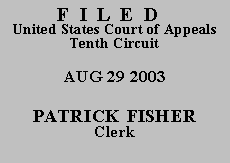

| UNITED STATES OF AMERICA, |
|
Mr. Tapia was charged with possession of methamphetamine with intent to distribute ("Count I"), possession of firearms in furtherance of a drug trafficking crime ("Count II"), and maintaining a place for the purpose of manufacturing, distributing and using methamphetamine ("Count III"). I R. Doc. 11. Mr. Tapia thereafter entered an unconditional guilty plea to Count II and was sentenced to a term of imprisonment of 120 months followed by 60 months of supervised release. The district court thereafter dismissed Counts I and III at the government's request.
In his Anders brief, counsel for Mr. Tapia states that after diligently reviewing the case he could find "no issue which can arguably support an appeal." Aplt. Br. at 7. The certification of service indicates that Mr. Tapia was served with a copy of the brief and motion to withdraw; he has not responded. See 10th Cir. R. 46.4(B)(2). In Anders, the Supreme Court held that if appointed counsel "finds his case to be wholly frivolous, after a conscientious examination of it, he should so advise the court and request permission to withdraw." 386 U.S. at 744. Where counsel has filed an Anders brief, we must conduct a "full examination of all the proceedings" to determine if the appeal is "wholly frivolous." Id. If we concur in counsel's evaluation of the case, we may grant the request to withdraw and dismiss the appeal. Id.
After a thorough review of the record we conclude there are no meritorious issues for appeal. As to Mr. Tapia's conviction, we note at the outset that because a defendant who pleads guilty waives all non-jurisdictional challenges to his conviction, his "only avenue for challenging his conviction is to claim that he did not voluntarily or intelligently enter his plea." United States v. Wright, 43 F.3d 491, 494 (10th Cir. 1994) (citing Mabry v. Johnson, 467 U.S. 504, 508-09 (1984)). However, Mr. Tapia has not argued that his plea was involuntary or unknowing, and nothing in the record suggests that it was. As to the validity of his sentence, the record reveals that the sentence imposed was within the applicable guideline range, that the guideline range was correctly determined, and that the district court did not exceed the statutory maximum sentence for the offense of conviction. In fact, Mr. Tapia received the lightest allowable sentence given the applicable mandatory minimum.
Accordingly, we DISMISS the appeal and GRANT counsel's request to withdraw.
Entered for the Court
Paul J. Kelly, Jr.
Circuit Judge
*. This order and judgment is not binding precedent, except under the doctrines of law of the case, res judicata, and collateral estoppel. This court generally disfavors the citation of orders and judgments; nevertheless, an order and judgment may be cited under the terms and conditions of 10th Cir. R. 36.3.
2. After examining the briefs and the appellate record, this three-judge panel has determined unanimously that oral argument would not be of material assistance in the determination of this appeal. See Fed. R. App. P. 34(a); 10th Cir. R. 34.1(G). The case is therefore ordered submitted without oral argument.